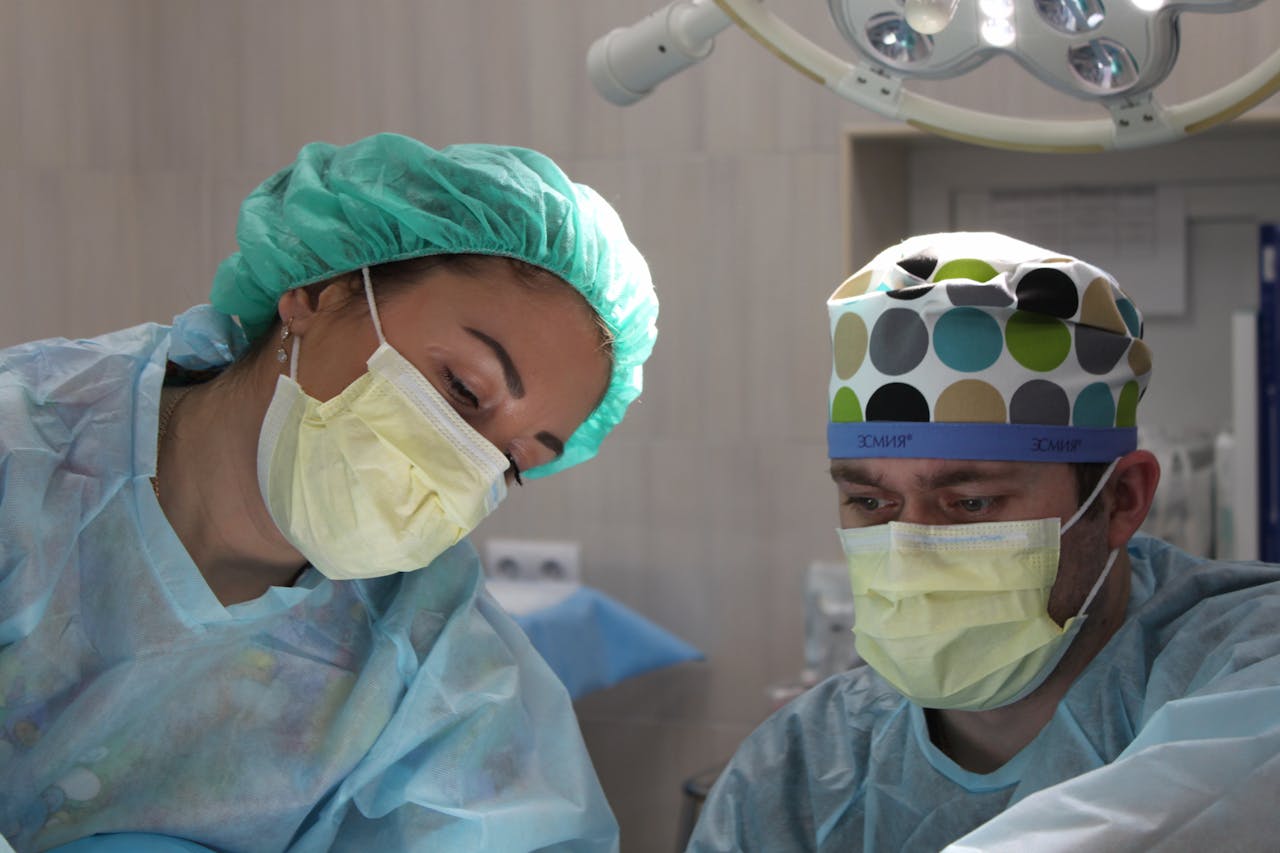
Many nurses enter the operating room without enough preparation for its fast pace, complex equipment, or the critical teamwork it demands. The learning they received during nursing school may not be enough to keep up with current practices. Surgical techniques, patient safety standards, and equipment are constantly changing. Without regular training, it’s easy to fall behind.
Continuing education helps bridge that gap. It allows nurses to stay current, grow their confidence, and improve patient safety. This article explores how targeted education, especially in surgical nursing, plays a key role in creating a more reliable and safer operating room environment.
Table of Contents
- 1 1. The OR Is Always Evolving
- 2 2. Specialized Courses Build Real-World Skills
- 3 3. Updated Knowledge Helps Prevent Mistakes
- 4 4. Confidence Matters in High-Pressure Moments
- 5 5. Ongoing Learning Promotes a Safety-First Culture
- 6 6. Education Keeps Practice Aligned With Current Standards
- 7 7. Technology in Training Improves Patient Safety
- 8 8. Learning Can Reduce Nurse Burnout and Stress
1. The OR Is Always Evolving
Surgical settings are not static. Every year, new techniques, tools, and technologies are introduced. Surgeons rely on these innovations to improve outcomes and reduce risks. But when the surgical team isn’t familiar with the latest updates, things can go wrong.
Nurses play a critical role before, during, and after every procedure. If they don’t know how to manage new instruments or follow updated protocols, the entire process can suffer. That’s why continuing education is essential. It helps nurses keep pace with change and ensures they bring current knowledge into the OR every day.
2. Specialized Courses Build Real-World Skills
Not all nursing programs cover surgical care in detail. That’s where focused education comes in. A perioperative nursing course offers structured, in-depth training for nurses who want to work in surgical environments. These courses go beyond textbook learning. They teach the full perioperative process, including patient safety, sterile techniques, medication management, and communication with surgical teams.
What makes this type of course valuable is how it blends classroom learning with clinical experience. Nurses don’t just hear about the process—they practice it. This type of hands-on education builds stronger skills and prepares nurses to handle real-life challenges in the OR with greater confidence and control.
3. Updated Knowledge Helps Prevent Mistakes
Even experienced nurses can make mistakes if they rely on outdated practices. In the OR, small errors can have serious consequences. Giving the wrong medication, mislabeling instruments, or misjudging a sterile field can all lead to complications.
Continuing education helps prevent these mistakes. It provides up-to-date information about protocols, safety checklists, and new procedures. It also reminds nurses of best practices they may have learned years ago but no longer use every day. When nurses refresh their knowledge regularly, they’re less likely to slip into risky habits.
4. Confidence Matters in High-Pressure Moments
Surgery can be unpredictable. Emergencies happen. Surgeons may ask for things quickly. Patients can react unexpectedly. Nurses need to stay calm and think fast. But that kind of confidence doesn’t come naturally—it comes with preparation.
Ongoing education gives nurses the tools they need to feel more in control. When they know what to expect and how to respond, they move with purpose. They don’t second-guess themselves. That confidence doesn’t just help the nurse—it helps the whole team. It leads to quicker decisions, smoother workflows, and better outcomes for patients.
5. Ongoing Learning Promotes a Safety-First Culture
When nurses continue to learn, they bring new practices and attitudes into the OR. This helps create a culture where safety comes first. Other team members take notice when someone uses updated checklists or follows precise protocols. It encourages others to do the same.
This mindset spreads across the entire unit. Nurses begin to share tips, support each other, and ask more questions. It creates a space where people feel responsible for patient safety and are motivated to do things the right way, every time. It’s not just about avoiding mistakes—it’s about setting a higher standard for care.
6. Education Keeps Practice Aligned With Current Standards
National guidelines change as new data becomes available. What worked five years ago may no longer be practiced today. If nurses don’t receive regular training, they may keep using methods that no longer match current safety standards.
Continuing education closes that gap. It helps nurses stay aligned with updated guidelines from boards and healthcare organizations. This is especially important in surgery, where even minor changes to prep, positioning, or wound care can make a big difference. Staying informed ensures nurses are using safe, approved techniques every time they step into the OR.
7. Technology in Training Improves Patient Safety
Modern training methods are much more interactive than they used to be. Many continuing education programs now use online modules, simulations, and virtual tools to teach key skills. These methods help nurses learn in a realistic, low-pressure environment.
For example, simulations let nurses practice responding to surgical emergencies, managing instruments, and working with a full surgical team. These tools help improve muscle memory, decision-making, and confidence. Because the learning is hands-on, it sticks. Nurses are more likely to carry those lessons into the real OR, where every second counts.
8. Learning Can Reduce Nurse Burnout and Stress
Working in the OR is demanding. Long hours, high-stakes decisions, and constant pressure can take a toll on mental health. Nurses who feel underprepared are more likely to feel stressed or burned out. This can lead to errors or poor communication.
Continuing education can help prevent that. When nurses gain new skills, they feel more capable. They don’t hesitate as much. They know how to manage tools, talk with the team, and respond to problems. This makes their day smoother and less overwhelming. When nurses feel more in control, they enjoy their work more and deliver better care.
The operating room is one of the most complex places in healthcare. Every person in that room has a role in keeping the patient safe. Nurses are a critical part of that team, and the choices they make can have a real impact.
Continuing education gives nurses the knowledge, confidence, and tools they need to support safety at every step. It helps reduce errors, improve teamwork, and create a culture where learning never stops. Investing in ongoing training isn’t just good for careers—it’s essential for better patient outcomes.


